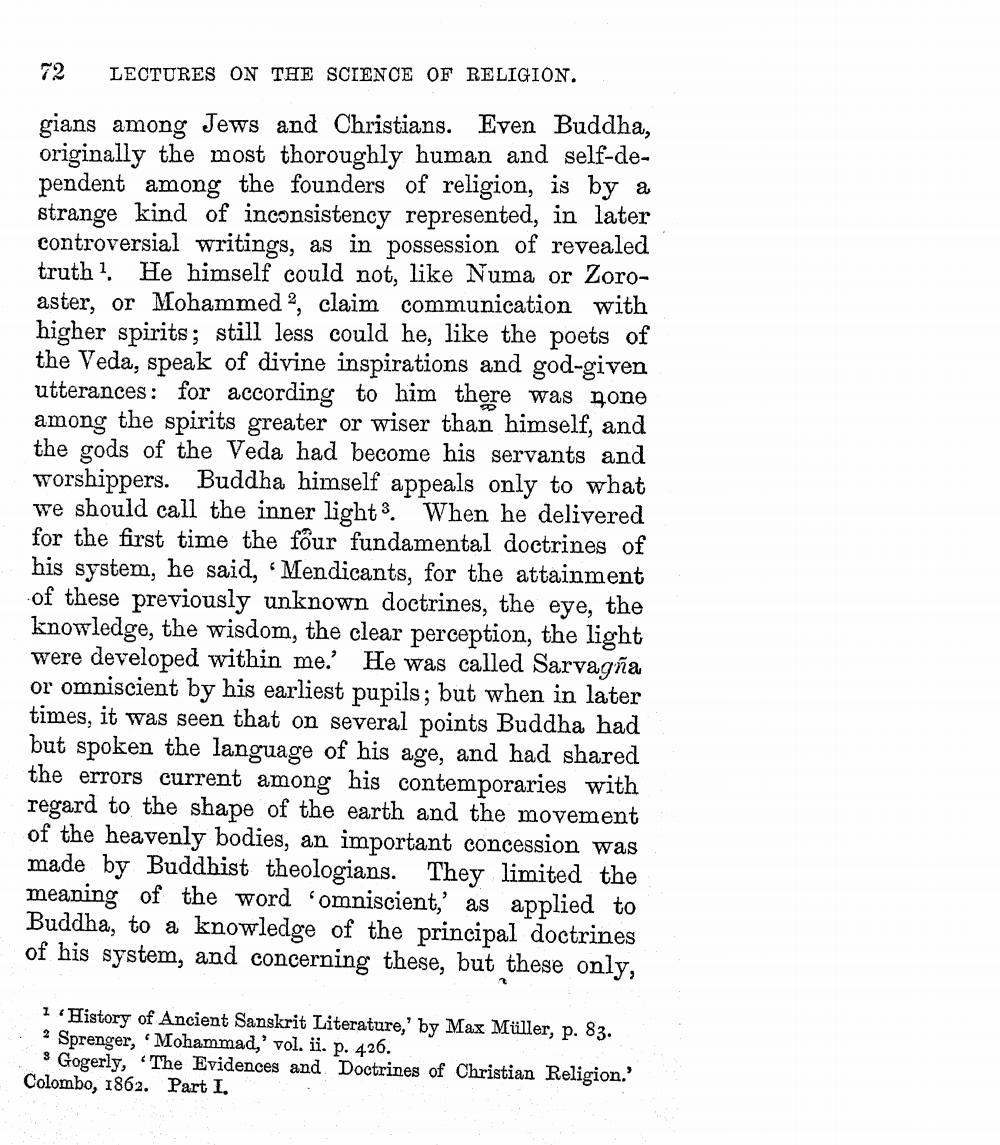________________
12
LECTURES ON THE SCIENCE OF RELIGION.
gians among Jews and Christians. Even Buddha, originally the most thoroughly human and self-dependent among the founders of religion, is by a strange kind of inconsistency represented, in later controversial writings, as in possession of revealed truth? He himself could not, like Numa or Zoroaster, or Mohammed?, claim communication with higher spirits; still less could he, like the poets of the Veda, speak of divine inspirations and god-given utterances: for according to him there was none among the spirits greater or wiser than himself, and the gods of the Veda had become his servants and worshippers. Buddha himself appeals only to what we should call the inner light. When he delivered for the first time the four fundamental doctrines of his system, he said, "Mendicants, for the attainment of these previously unknown doctrines, the eye, the knowledge, the wisdom, the clear perception, the light were developed within me. He was called Sarvagña or omniscient by his earliest pupils; but when in later times, it was seen that on several points Buddha had but spoken the language of his age, and had shared the errors current among his contemporaries with regard to the shape of the earth and the movement of the heavenly bodies, an important concession was made by Buddhist theologians. They limited the meaning of the word omniscient,' as applied to Buddha, to a knowledge of the principal doctrines of his system, and concerning these, but these only,
1 History of Ancient Sanskrit Literature,' by Max Müller, p. 83. ? Sprenger, Mohammad,' vol. ii. p. 426.
3 Gogerly, The Evidences and Doctrines of Christian Religion.' Colombo, 1862. Part I.




